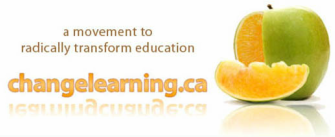Our vision is to synthesize research and promising practices related to how humans learn and develop, in order to entirely rethink the model of education in this country.
Read more

|
|
|
If we want our youth to turn into adults that are fulfilled, literate and connected to their families, culture, and global communities—what do we need to do? If we want life-long learners, ingenious thinkers and creative problem solvers, how do we nurture those qualities? If we want kids that are passionately engaged in life and society, where do we start? And if we want a society that spends less on jails, social services, crime prevention and health care, what needs to change?
Our vision is to synthesize research and promising practices related to how humans learn and develop, in order to entirely rethink the model of education in this country. Read more
0 Comments
Canada has a lot to be proud of when it comes to education. We rank well internationally, our schools are filled with intelligent, passionate educators, access is free and the majority of our youth graduate from high school to join a diverse and primarily peaceful, well-functioning society. Many of us, however, have a niggling suspicion that something isn’t quite right. When you can’t think of a single teenager who enjoys school and is excited to learn – something is wrong. When teachers can’t possibly use teaching strategies that support deeper learning because the curriculum is too crowded – something is wrong. And when we have increasing rates of youth violence, apathy, depression and suicide – something is very definitely wrong.
Read more Over the current decade, the growth rate in the 0-12 year age group will be negative. The implications of these demographic trends for human capital development [are significant]… it’s more important than ever that the human capital of children be developed as fully as possible if we are to raise the productivity of a future smaller labour force. David Dodge, Human Capital, Early Childhood Development and Economic Growth:
An Economist’s Perspective Given what we now know about human learning and child/adolescent development, it is morally irresponsible for us to continue with the education system we have. Parent and Trustee, Saskatoon Public Schools
As we slip into a new century, traditional education is alive and well and – as I see it- damaging a whole new generation of students. Alfie Kohn, The Schools Our Children Deserve (1999)
Change, change, WHO NEEDS CHANGE? Things are bad enough as they are. Lord Salisbury
This short video summarizes some of the most important characteristics of students today – how they learn, what they need to learn, their goals, hopes, dreams, what their lives will be like, and what kinds of changes they will experience in their lifetime. Created by Michael Wesch in collaboration with 200 students at Kansas State University.
|
Categories
All
Archives
August 2015
|